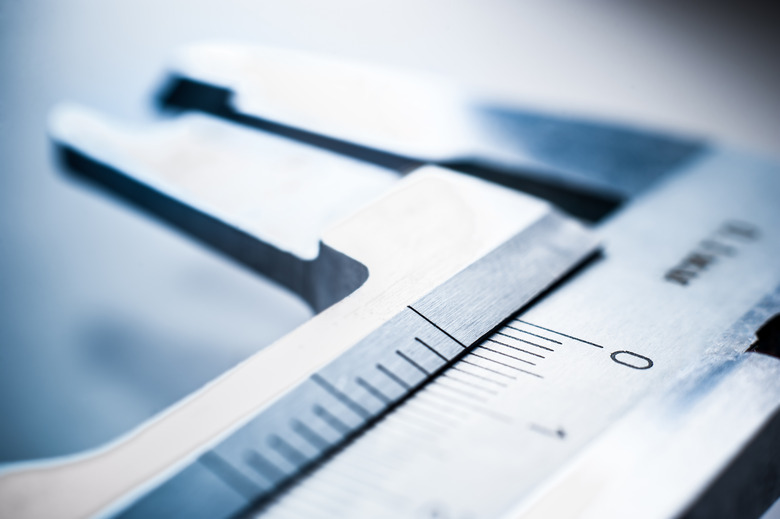How To Calculate Relative Accuracy
In the science of measuring things, "accuracy" refers to the difference between a measurement taken by a measuring tool and an actual value. For instance, a thermometer reading of 60 degrees Fahrenheit when the actual temperature is 62 degrees Fahrenheit is not totally accurate, though it is more accurate than a thermometer reading of 58 degrees Fahrenheit during that same time. The relative accuracy of a measurement can be expressed as a percentage; you might say that a thermometer is 98 percent accurate, or that it is accurate within 2 percent. These percentages are easy to calculate.
Step 1
Obtain the instrument for which you want to calculate the relative accuracy of measurements. For instance, you might want to know how accurate your thermometer's temperature readings are.
Step 2
Use the tool to measure something for which you know the exact value. For instance, a cup of ice water is 32 degrees Fahrenheit, so this would be an appropriate measurement to use. Your thermometer might measure the temperature of the water at 31 degrees Fahrenheit.
Step 3
Subtract the difference between the actual value and the measurement from the actual value and divide the result by the actual value to obtain the accuracy of the measurement. For our thermometer example:
\(\text{accuracy}=\frac{\text{actual value}-(\text{actual value}-\text{measurement})}{\text{actual value}}=\frac{32-(32-31)}{32}=0.968\)
Step 4
Multiply the result by 100 percent to convert the accuracy to a percentage. For our thermometer example:
\(\text{relative accuracy} = \text{accuracy}\times 100\%=0.968\times 100\% = 96.8\%\)
The thermometer's reading of the ice water was 96.8 percent accurate.
TL;DR (Too Long; Didn't Read)
You might also want to calculate the relative accuracy of things like stock price predictions. To do so, simply substitute the word "prediction" for "measurement" in the formula for accuracy.
Cite This Article
MLA
Banas, Timothy. "How To Calculate Relative Accuracy" sciencing.com, https://www.sciencing.com/calculate-relative-accuracy-6069718/. 31 October 2020.
APA
Banas, Timothy. (2020, October 31). How To Calculate Relative Accuracy. sciencing.com. Retrieved from https://www.sciencing.com/calculate-relative-accuracy-6069718/
Chicago
Banas, Timothy. How To Calculate Relative Accuracy last modified March 24, 2022. https://www.sciencing.com/calculate-relative-accuracy-6069718/
